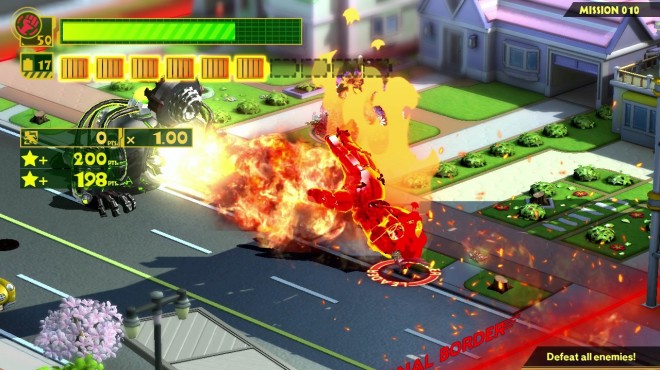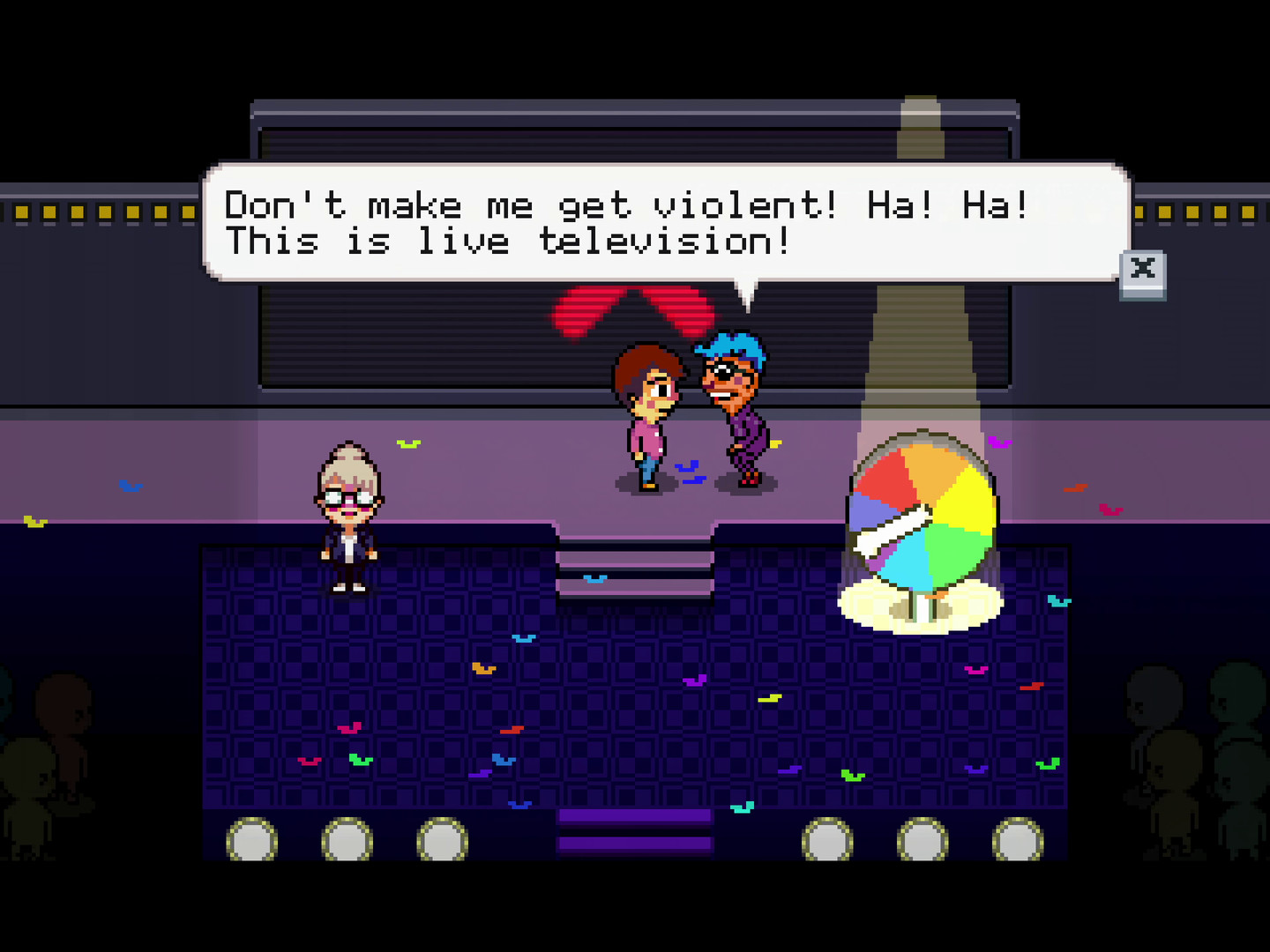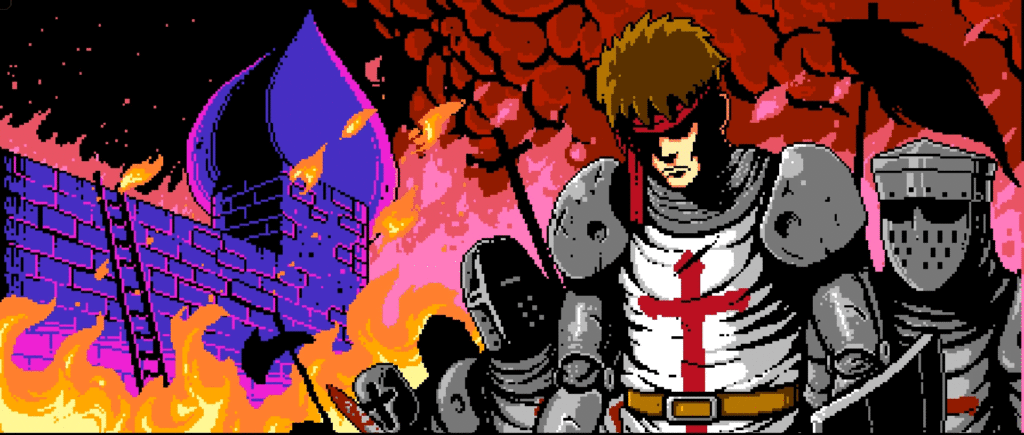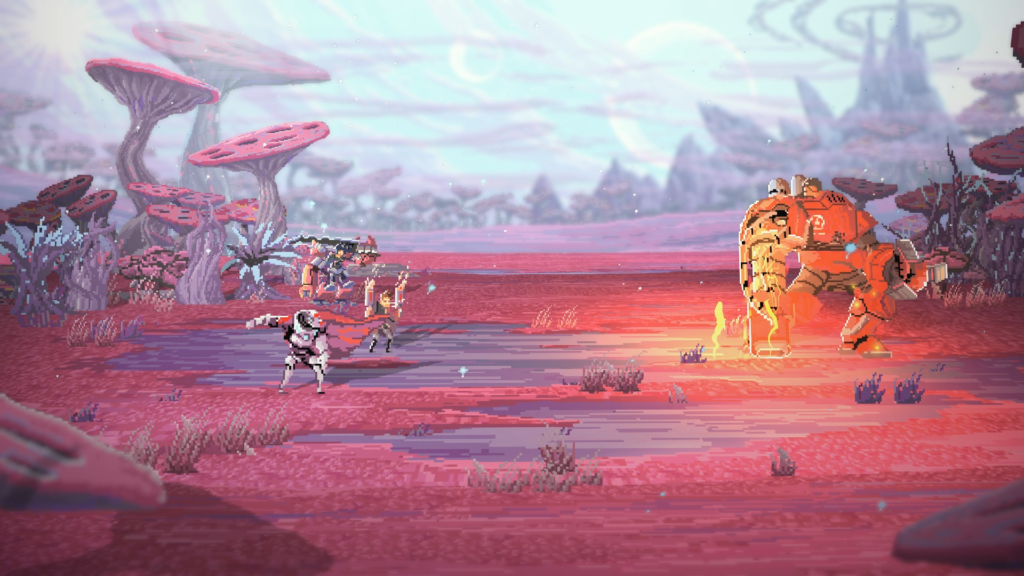
With another day and many, many more games under my belt, I can confirm that there are quite a lot of unique and interesting indies out there. Goofy VR games, frantic cooperative experiences, intense competitive titles, cutesy platformers, and gory splatterfests all reside in close proximity on the show floor, a microcosm of how broad the gaming scene has become. While certain genres have become exceedingly popular, and I’ve heard more people use the term”roguelike” and “Metroidvania” (myself included) over the last three days than I care to admit, there are so many differing takes on even these basic premises that it’s hard not to be impressed by the scope of different gaming experiences out there. And with that said, let’s run down my favorites from day three.
And, if you haven’t checked it out yet, here are my favorite games on the show floor from day one, and day two as well.
The Wonderful 101: Remastered

At this point, PlatinumGames is well-known for their ability to make great character-action games, each defined by unique twists on the studio’s essential formula. With their re-release of The Wonderful 101, the studio looks to reinforce that reputation. Taking inspiration from Tokusatsu fiction (think Power Rangers), the premise is that a legion of superheroes must band together to protect the Earth from an alien invasion. You control this massive mob of good guys, combining the members of this squad to form powerful weapons and tools. The right analog stick is used to draw shapes that transform your crew into various giant weapons. Pulverizing alien hordes with these gigantic fists, swords, and guns is immediately satisfying, the over the top spectacle and overpowering force of your blows coming across through the utter destruction of your enemies. Unsurprisingly for a Platinum game, the evasion mechanics are similarly fun to use, quick dashes and easy to use blocks giving you the tools to succeed. There is something inherently satisfying about commanding an army of unstoppable superhumans as you speed through this miniature cityscape, and the quick-paced action cashes in on the appeal of this premise. It’s nice that this game is finally getting a bigger audience, and escaping the relative obscurity of being a Wii U only game.
Knuckle Sandwich

Drawing inspiration from Mario Superstar Saga, Warioware, and classic JRPGs, Knuckle Sandwich blends its various points of inspiration into a veritable cocktail of insanity. Traditional turn-based combat is replaced by a combination of unique mini-games and timing-based encounters, making standard battles into fun skill-based affairs. These sequences are frantic micro-games that feature challenges unique to each enemy type. In one sequence I piloted a space ship, while in another I had to quickly mash out a series of attacks to maximize damage. Instead of random battles being a chore that I dreaded, I found myself actively seeking out fights so that I could experience a weird new vignette. This unique charm extends well past the gameplay, and the one minute trailer on the game’s Steam page does a good job of capturing the surreal experience of playing this game. Beyond the appealing art style that bears a lot of resemblance to Alphadream’s Mario RPGs, in the short demo that I played, I experienced green greasers, monstrous ice cream, and capitalistic cannibals. The hilarious and grim sense of humor is flanked by some apparent depth in the RPG systems, making for the type of oddball experience that exemplifies indie games at their best.
Infernax

Over the last few years, retro platformers have become a staple of contemporary gaming. Infernax very much fits into this mold, but it synthesizes its host of influences while avoiding becoming a slave to them. Its look and basic gameplay both draw influence from NES Castlevania games, while its usage of RPG mechanics is reminiscent of Zelda II. But where it differs is how it fuses Metroidvania exploration and modern design philosophies into the proceedings. Unlike old-school Castlevania games, you maintain air control over your jump, which when combined with the basic responsiveness of movement makes it so that the platforming feels great. Another smart feature is the option to choose between two different save state modes, one where when you die you reload from a previous save station, and another where you respawn at a more generous autosaved checkpoint. After a few failed attempts at trying to explore a certain path, your character will comment on the fact that you don’t currently have the tools to proceed in a certain direction. These are smart inclusions that help curtail some of the more unpleasant aspects of old-school design. The addition of upgrade mechanics and open-ended exploration adds some welcome depth, and while it’s impossible to know how these aspects will pan out from a short demo, it is encouraging that they are there. In terms of style, it hits a campy sweet spot thanks to the demonic monster designs, hellish background art, and hilarious overindulgence. Death results in cartoonishly over the top animations in which the creature that killed you gratuitously decimates your body. Infernax may not be completely revolutionizing the retro platformer, but from what I played it seems to successfully evoke the feel of that style of game without blindingly adhering to all of its principles.
Star Renegades

Roguelikes are another genre that is very much in vogue at the moment, but Star Renegades looks to differentiate itself from the pack with deep turn-based combat. Although some of the tactical complexity on display here was a little overwhelming for a demo, it seems as though there is a wide range of potential decisions in any given battle, which when coupled with the notable difficulty and permadeath format, means that every single decision counts. Both your team members and enemies all have shields, armor, and health, each of which are weak to different types of attacks. At the beginning of each turn in battle, the enemy’s upcoming attacks are laid out in a timeline. This is important because these upcoming actions can be manipulated, allowing you to stall or delay them entirely depending on the moves you choose. On top of this, there are abilities that allow for buffing, debuffing, and healing, adding an additional array of options. In practice, each turn plays out with tension and suspense, and each decision must be carefully weighed to maximize your chance of surviving the brutal gauntlets that await. Leveling mechanics, relationship systems, and choices around how you choose to proceed through an area create an additional rich layer of macro-decision making. In my time with the game, this all came together to create an enthralling web of myriad choices. Hopefully, the difficulty is finely tuned, and the procedurally generated levels stay fair throughout because there seems to be a great deal of nuance here. When combined with vibrant pixel art that calls to mind the striking attack animations of turn-based RPG classics like older Fire Emblem games, Star Renegades is a very promising strategy roguelike.




